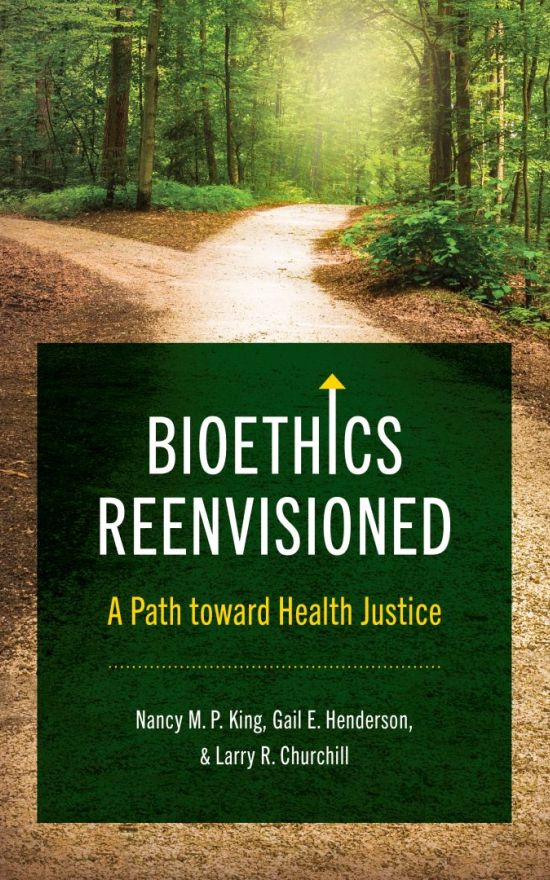
Bioethics Reenvisioned: A Path Toward Health Justice
Larry R. Churchill
Gail E. Henderson
Bioethics needs an expanded moral vision. Born in the ferment of the 1970s, the field responded to rapid developments in biomedical technology and injustices in clinical care and research. Since then, bioethics has predominantly focused on respect for autonomy, beneficence and nonmaleficence, and the zero-sum “lifeboat” ethics of distributive justice, applying these principles almost exclusively within the walls of medical institutions. It is now time for bioethics to take full account of the problems of health disparities and structural injustice that are made newly urgent by the COVID-19 pandemic and the effects of climate change. This book shows why and how the field must embrace a broader and more meaningful view of justice, principally by incorporating the tools and insights of the social sciences, epidemiology, and public health. Nancy M. P. King, Gail E. Henderson, and Larry R. Churchill make the case for a more social understanding and application of justice, a deeper humility in assessing expertise in bioethics consulting, a broader and more relevant research agenda, and greater appreciation of the profound health implications of global warming.
“In this valuable and discussion-provoking contribution to the field, Nancy M. P. King, Gail E. Henderson, and Larry R. Churchill explore the need for bioethics to attend to justice-focused considerations and to work across boundaries of institutions, fields, and disciplines. A pleasure to read.”—Lisa S. Parker, University of Pittsburgh
“What does our current moment have to teach us about bioethics? According to King, Henderson, and Churchill: quite a lot. In this timely exploration, they argue that issues like climate change, infectious disease, and rampant injustice necessitate a shift in how we think about ethics. We would be well advised to listen to them.”—Travis N. Rieder, associate research professor at the Johns Hopkins Berman Institute of Bioethics






